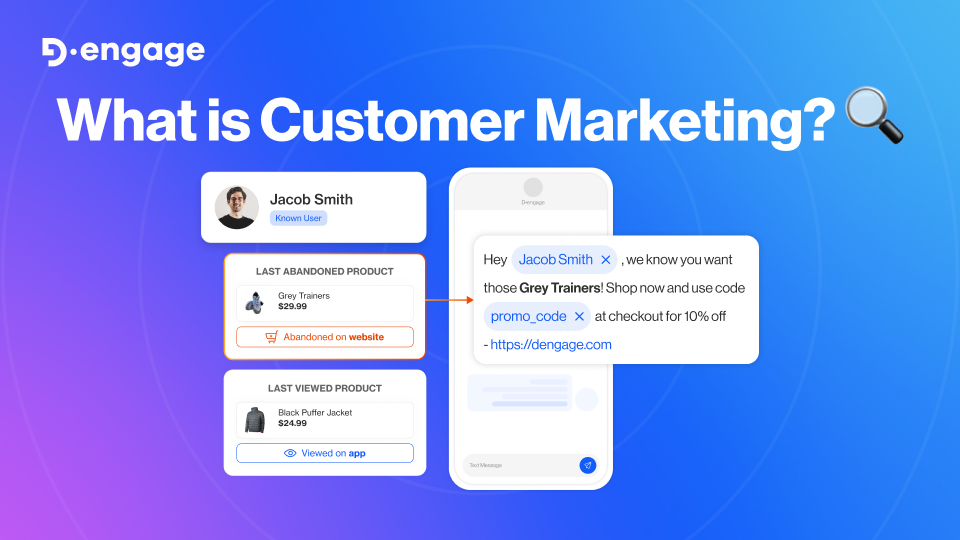Customer marketing, a pivotal strategy in the realm of digital marketing, focuses on fostering meaningful and lasting relationships with existing customers rather than solely acquiring new ones. As organizations strive to improve customer retention and enhance lifetime value, understanding the intricacies of customer marketing becomes essential.
The Essence of Customer Marketing
Customer marketing revolves around strategies aimed at engaging and nurturing existing customers. This approach leverages data-driven insights to create personalized experiences that not only retain customers but also turn them into brand advocates. By employing effective customer marketing strategies, businesses can achieve a higher return on investment (ROI) and build a loyal customer base.
Key Components of Customer Marketing
Segmenting your customer base allows for tailored marketing efforts. By understanding the unique needs and behaviors of different segments, businesses can deliver more relevant content and offers.
Utilizing advanced personalization techniques, such as those offered by Dengage, ensures that marketing messages resonate with individual customers, fostering deeper connections.
Implementing loyalty programs encourages repeat purchases and increases customer lifetime value. Rewarding customers for their loyalty builds a sense of appreciation and belonging.
Gathering and acting on customer feedback helps improve products and services, enhancing customer satisfaction and loyalty.
Leveraging analytics and customer data to inform marketing strategies ensures that decisions are backed by concrete evidence, leading to more effective campaigns.
The Impact of Customer Marketing
Industry Analysis and Statistics
- Retention vs. Acquisition Costs:
It is widely reported that acquiring a new customer can cost five times more than retaining an existing one. This highlights the cost-effectiveness of focusing on customer marketing strategies.
According to a study by Bain & Company, increasing customer retention rates by 5% can increase profits by 25% to 95%.
- Customer Lifetime Value (CLV):
A Harvard Business Review study found that increasing CLV by just 1% can lead to a 12% increase in a company’s value.
- Loyalty Program Statistics:
Research from Accenture indicates that 83% of customers are more likely to do business with brands that offer loyalty programs.
Epsilon’s research reveals that 80% of consumers are more likely to make a purchase when brands offer personalized experiences.
Implementing Customer Marketing Strategies
Creating valuable content tailored to different customer segments can significantly enhance engagement. For example, sharing insights on customer marketing through blogs and newsletters keeps customers informed and engaged.
Targeted email campaigns, powered by robust tools like Dengage, can effectively nurture customer relationships. By sending personalized offers and updates, businesses can maintain ongoing engagement with their audience.
Leveraging social media platforms to interact with customers and share relevant content can build community and loyalty. For more insights, explore Sprout Social’s guide on customer marketing.
Creating feedback loops where customers can share their experiences and suggestions helps improve products and services, fostering a sense of collaboration and trust.
- Cross-Selling and Upselling:
Using data to understand customer needs and preferences allows businesses to effectively cross-sell and upsell products, increasing average order value and customer satisfaction.
Advantages of Customer Marketing
Enhanced Customer Loyalty
By focusing on customer marketing, businesses can develop stronger relationships with their customers. This loyalty not only translates into repeat business but also word-of-mouth referrals, which are incredibly valuable.
Improved Customer Experience
Personalization and targeted marketing efforts lead to a better overall customer experience. When customers feel understood and valued, their satisfaction levels rise, leading to increased loyalty and lifetime value.
Higher ROI
Investing in existing customers often yields a higher ROI compared to customer acquisition. By leveraging data and insights to tailor marketing strategies, businesses can achieve more efficient and effective outcomes.
Ethical and User-Centric Marketing
At Dengage, we prioritize ethical and user-centric marketing approaches. This not only enhances brand reputation but also ensures that marketing efforts are respectful and beneficial to customers.
Industry Best Practices
To delve deeper into effective customer marketing strategies, explore Peer to Peer Marketing’s insights. These resources offer valuable tips and best practices to help businesses refine their customer marketing efforts.
Conclusion
Customer marketing is a critical component of modern digital marketing strategies. By focusing on retention, personalization, and data-driven insights, businesses can build stronger relationships with their customers, leading to enhanced loyalty and increased revenue. As we continue to innovate and deliver ethical, user-centric solutions at Dengage.
By implementing these strategies, businesses can not only improve their bottom line but also create meaningful and lasting relationships with their customers, ensuring sustained success in the digital age.
